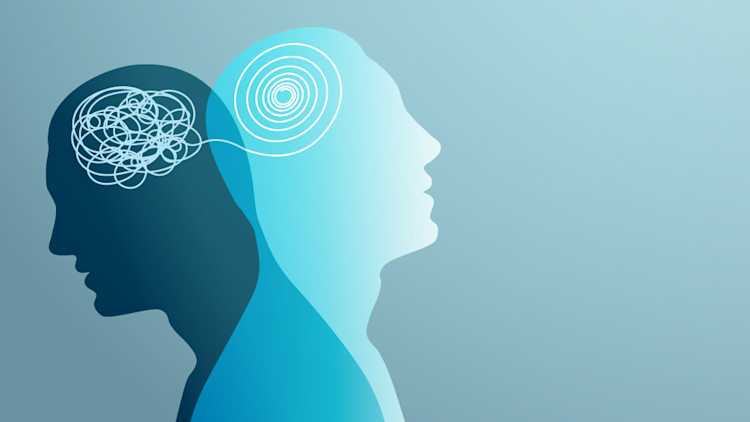Addiction and mental health: Know the warning signs

It is not uncommon for there to be a relationship between addiction and mental health challenges. Sometimes an addiction contributes to a mental health issue. It can also be the other way around. Being aware of changes in patterns of behaviour in ourselves and those around us can help to prevent or manage damaging addictive tendencies.
Based in rural southern Ontario, Bonnie Taylor, registered social worker and psychotherapist, sees substance abuse as a challenge for agriculture, especially when stress and anxiety are running high. “It happens gradually, but sometimes a social drink or a post-dinner beer can become ingrained and over time it evolves from moderation into addiction. Sleep is often a big part of the equation. Intense pressure during busy times can make it difficult to calm down and get enough sleep. Drinking or using other substances to help with sleep can become the norm and, eventually, a problem.”
Self-awareness and honesty
Because it often happens over time, the negative impacts of addiction may also be noticed gradually. As the addiction worsens, problems can start to arise in personal and professional relationships, quality of work, and even safety issues on the job.
According to Taylor, when behaviour and use patterns change, it’s important to ask “Why am I drinking or using drugs more often? Should I take a break? Do I need to change my use patterns and exposure to the substance?”
Watch for the signs
The signs of a problematic addiction are often similar to those of mental illness. You may notice that your family member or work colleague no longer seems to enjoy things that used to be positive for them, becomes very defensive about their drinking or drug use, is often late for work or just not getting things done.
It’s not uncommon for addictions to change our behaviour, our social activities, who we spend time with and our outlook on life.
“It’s not uncommon for addictions to change our behaviour, our social activities, who we spend time with and our outlook on life, being quick to anger, isolating oneself to drink or use alone. Eventually, the habit formed to help cope with stress or pressure no longer works, but reversing the ingrained habit becomes very difficult,” Taylor says.
Some addictions arise from a socially acceptable activity – a social drink or using recreational drugs. Other addictions can result from pain management medications that are used for extended periods and become a problem.
“Whether it’s alcohol, recreational or prescription drugs, gambling or something else, an addicted brain is looking for that stimulation and when it’s not provided, there is a negative feeling or withdrawal.
For some, the severity of the withdrawal process makes it extremely difficult to reduce or stop using the substance,” Taylor says. Addiction to opioid medication can be particularly problematic and should involve a doctor and an addiction specialist.
How to help
Challenging a family member or employee about a potential addiction is not helpful. “Wait for an opportunity to talk when the person is not under the influence. Be compassionate and considerate – the message is that you are worried about them. No accusations. Have contact information on hand for resources that may be helpful.”
Taylor says that people often recognize that they are in trouble with an addiction but are reluctant to do anything about it.
“It’s important to remember that no one sets out to become addicted, but it happens. Be supportive and offer any help that might make it easier for them to take that first step.”
Harm reduction strategies
Finding things to replace the addictive behaviour is part of a harm reduction strategy. “If a drink after work is turning into a nightly bingeing episode, try changing that ritual to taking a walk, putting energy into a project or hobby, or even spending more time with friends and family that are not enabling or supporting the addiction behaviour.” It’s essential to carve out time in the schedule away from work and harmful behaviour for self-care activities.
Help is available
Addiction affects men and women, young and old, and it extends beyond the person with the addiction. Support and professional help for both the person with the addiction and those around them is available. Starting with a family doctor is a good step but other resources may be helpful when getting to a doctor or counsellor is not an option.
For a detailed list of mental health resources for people working in agriculture, please visit fcc.ca/Wellness.
The 4 cs of addiction
Compulsion
An individual has an absolute and overpowering urge to fuel their addiction. By not partaking in the habit, agonizing anxiety occurs, affecting all other behaviours.
Craving
The urge to fuel the addiction becomes as demanding as hunger pain. It feels like it’s vital for survival. This urge often manifests as restlessness, insomnia and lack of appetite.
Consequences
Even when negative consequences become apparent, the behaviour continues. Consequences of addiction include relationship, work, legal and money problems.
Control
Control of when or how the individual fuels their addiction is lost. It becomes impossible to cut down or eliminate the behaviour when the lack of control stage of addiction is reached.
Sources: National Center for Biotechnology Information, U.S. National Library of Medicine, National Institutes of Health, Healthline
From an AgriSuccess article by Peter Gredig.
